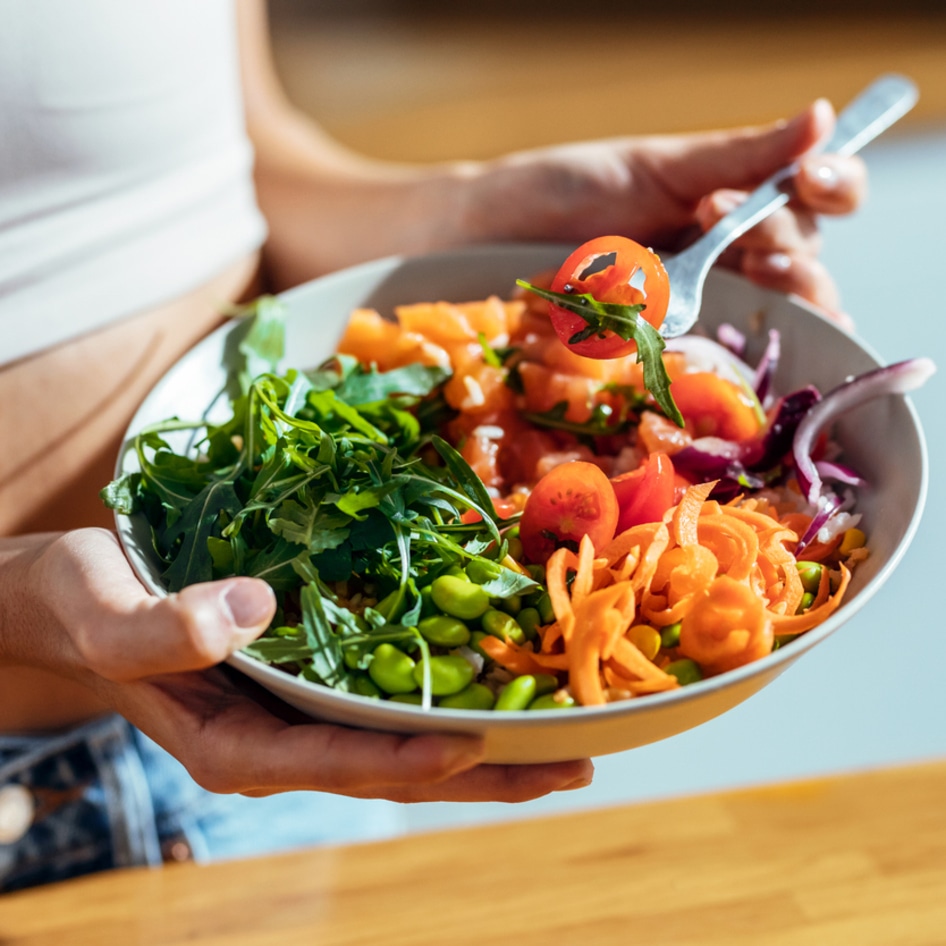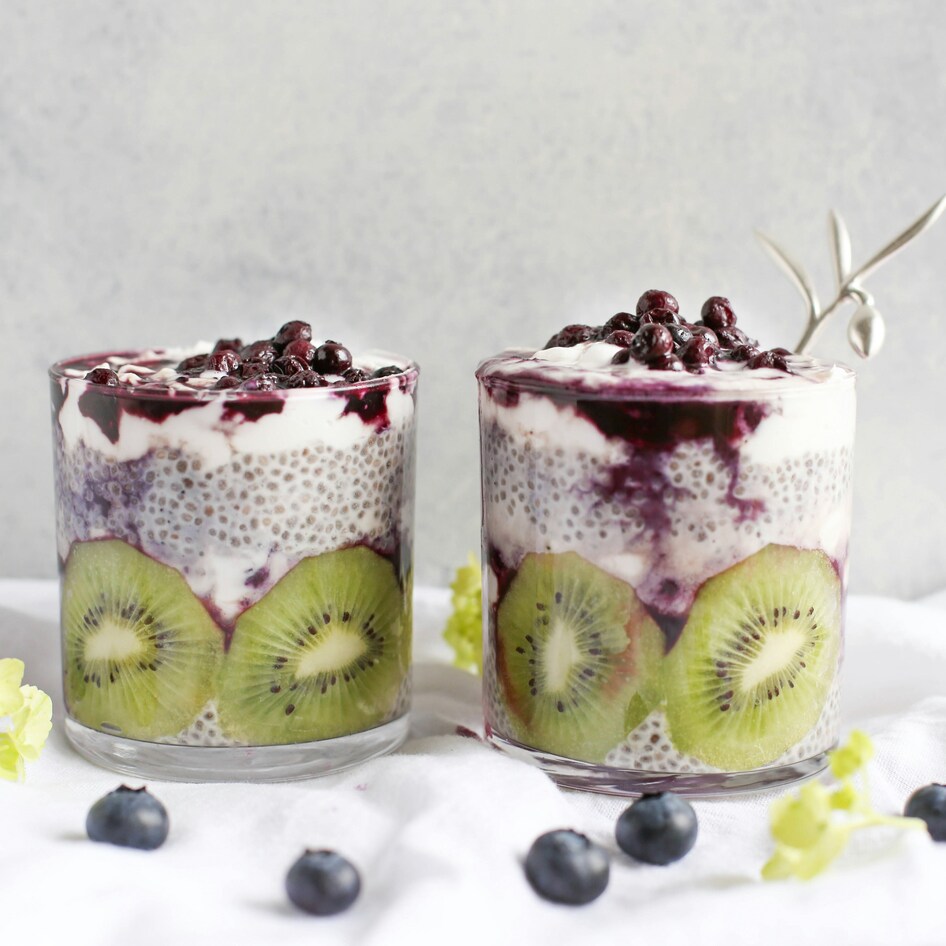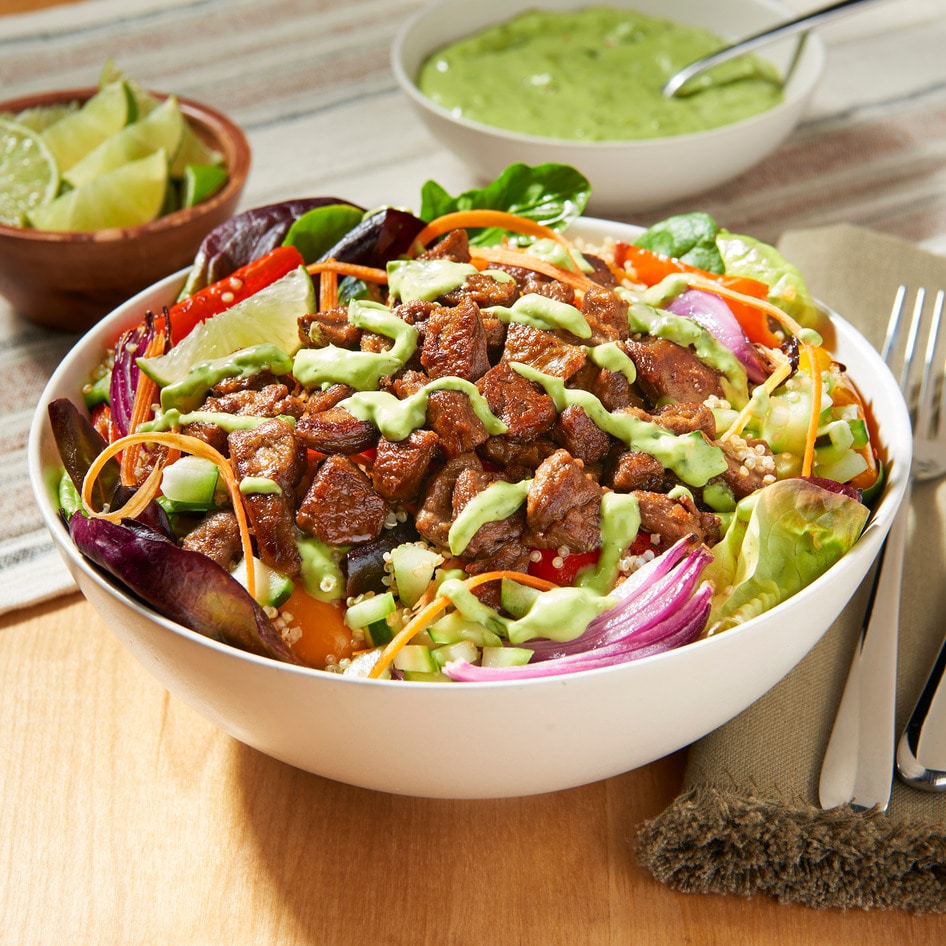Western society has long been obsessed with protein. But for at least a decade, much of the media has been asking if this obsession is really that necessary—and according to experts, the general consensus is no, it’s not.
“It’s not a nutrient that’s of grave concern,” Andrea N. Giancoli, MPH, RD told The Washington Post in 2014. Two years later, sports nutritionist Robbie Clark told HuffPost that most Australians are eating “far more protein than they actually need.” And in 2023, medicinal chef Dale Pinnock told Men’s Health that the fixation on protein was an example of “bro science.”
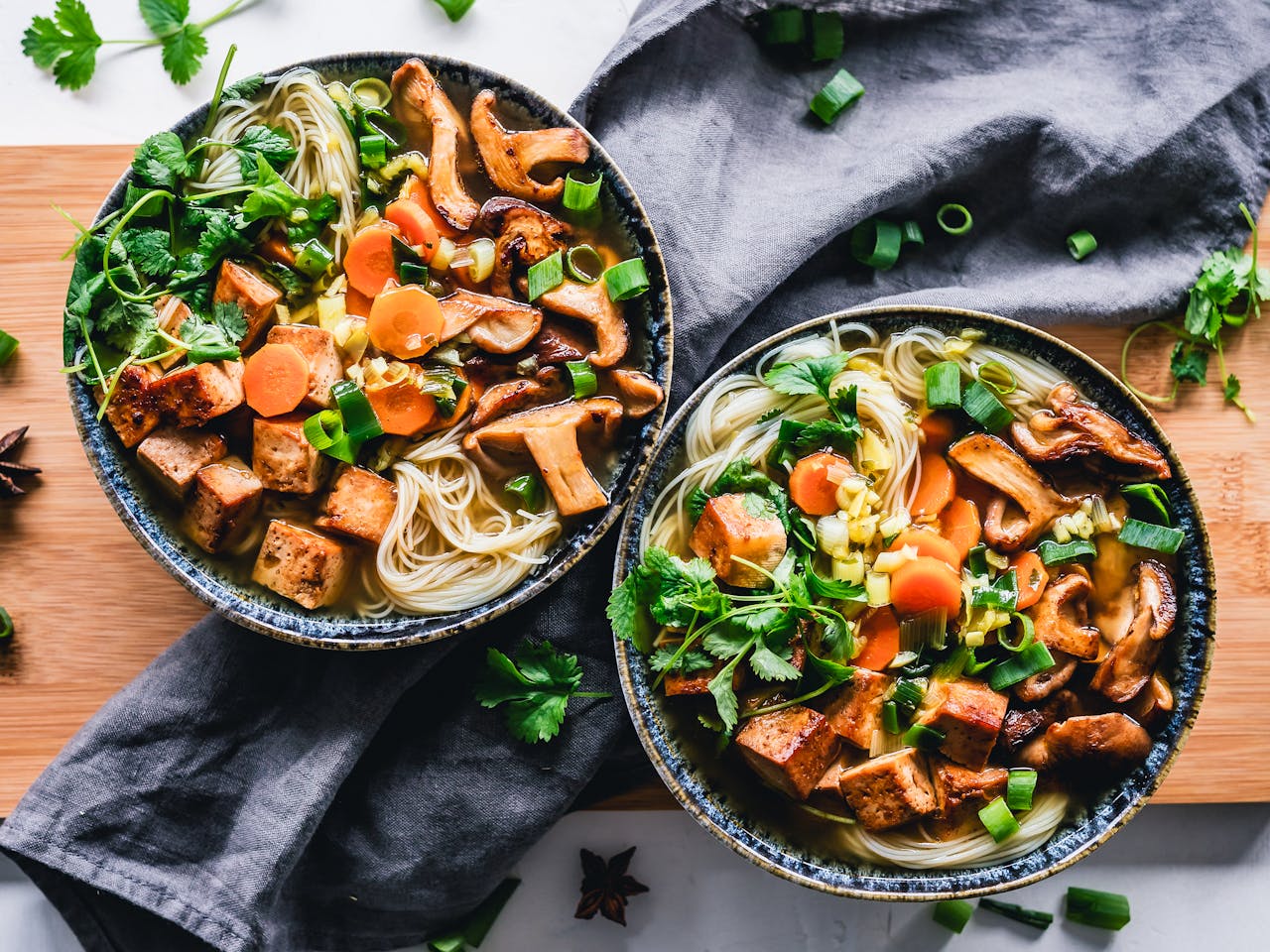 Pexels
Pexels
None of this is to say that protein is not important. It very much is. Protein is an essential macronutrient—it helps with muscle growth and repair, enzyme function, hormone regulation, immune system support, energy levels, and more. It’s just that the average person likely doesn’t need to obsess over it quite as much as society is telling them to. And by society, right now, we mostly mean social media. On TikTok, more than 660,000 posts feature the hashtag #highprotein, while just #protein exceeds 2 million posts.
To figure out how much protein we really need (and what happens if we pack in too much), we spoke to experts to get the lowdown on this much-hyped macronutrient. Plus, plants or animals—does it matter where you get it from?
How much protein do humans really need?
The recommended daily protein intake for adults varies—the guidance changes, depending on factors like activity level (an athlete needs significantly more, for example), weight, and sex. But in general, for most healthy people, the recommendation is to eat around 0.8 grams of protein per kilogram of body weight per day.
Right now, however, most adults in the US are actually exceeding this. In fact, research suggests they are eating double the amount of protein neded. “Athletes and people who are more physically active may need more protein, but for most people, exceeding 2 grams per kilogram is likely excessive,” Wan Na Chun, MPH, RD, CPT, and owner of the food blog One Pot Wellness, told VegNews.
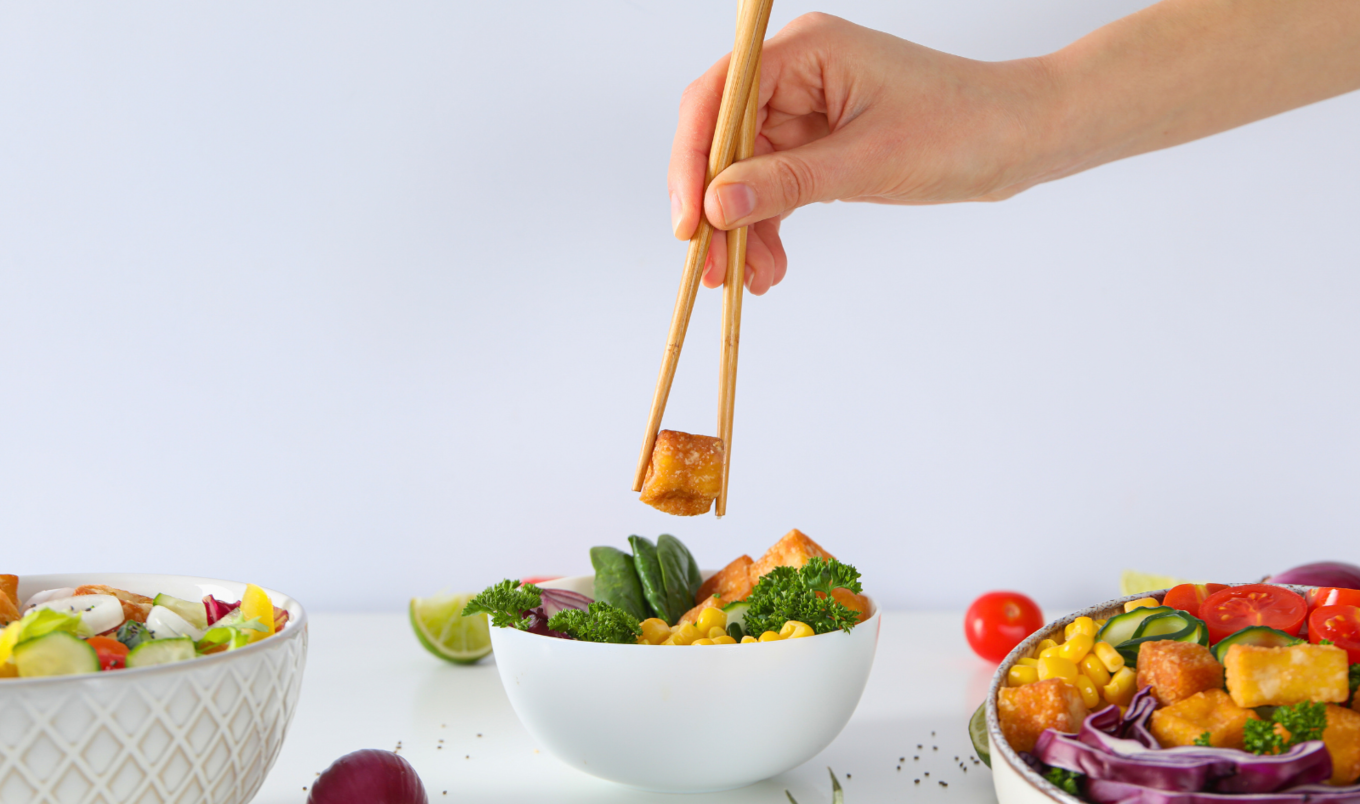 Canva
Canva
She added that “focusing heavily on protein may crowd out other essential nutrients from your diet, such as fiber, carbohydrates, and healthy fats.” None of these get as much attention as protein.
The hashtags #carbohydrates, #healthyfats, and #fiber are all dwarfed by the protein hashtags. And yet, they are just as important. Fiber is linked with maintaining digestive health, gut health, and lowering cholesterol, for example, and carbohydrates are vital energy sources that also support brain health and function. Healthy fats are also important for energy levels, as well as heart health, hormone production, vitamin absorption, and much more.
What happens if you eat too much protein?
Firstly, it’s unlikely that the average person would consume so much protein it would cause them major problems. “Protein is a macronutrient, meaning it contributes to your total caloric intake, and thus excess intake could result in undesired weight gain,” explains Derek Lipton MS, RD, CSSD, CSCC, sports nutrition consultant for Bodybuilding Reviews. “However, this is extremely rare since protein is very filling, which often leads to less overall intake.”
Those with kidney problems, however, need to be mindful. “The kidneys filter out protein in the body, and if you overload them with protein, this could lead to the kidneys being damaged slowly over time,” says Michelle Saari MSc, RD, of the EHealth project. “This is especially concerning for anyone who is predisposed to kidney problems.”
 Unsplash
Unsplash
However, even if you don’t have issues with your kidneys, you could still notice some ill effects from eating more protein than your body needs. For some people, it could lead to nausea, constipation, diarrhea, and bloating. But not eating enough protein can also lead to issues, hence why it’s important to stick to the guidelines.
“Chronically low protein intake can lead to muscle loss, weakness, and fatigue. This can make everyday activities more difficult and hinder recovery from injuries,” says Chun.
Which is better, animal protein or plant protein?
Most people who follow a varied and balanced diet are getting enough protein—yep, even vegans. Plant-based sources of protein include tofu, peas, beans, lentils, chickpeas, nuts, and seeds. But animal products are, of course, packed with protein, too.
“Both plant-based sources like beans and animal-based sources like meat have their own set of unique nutrients that are beneficial for the body,” notes Chun. “Animal proteins are ‘complete,’ meaning they contain all nine essential amino acids, and are thus more effective for muscle growth and repair,” says Lipton. “However, plant-based proteins, such as beans, can be just as effective as long as multiple sources are consumed in order to [obtain] all of the amino acids; for example, eating beans with rice.”
“While the overall protein intake might be sufficient, it is very common for people to rely heavily on animal sources for protein. This can lead to potential issues like consuming excess saturated fat and neglecting other essential nutrients like fiber found more readily in plant-based protein sources,” Chun explains.
But while there’s no denying that animal products can give us protein, they also often come with major downsides. Red meats, for example, are packed with protein (one steak contains around 25 grams), but they also contain high levels of saturated fat. The latter can raise blood cholesterol levels, and when consumed often, could lead to a higher risk of heart disease. Research suggests eating too much red meat could increase the risk of type 2 diabetes by 62 percent, and it could also raise cancer risk, too.
The World Health Organization classifies red meat products as a Group 2 carcinogen, while processed meats (like sausages, bacon, and so on) are classified as Group 1—the same category as smoking.
On the other hand, a growing body of research has linked plant-based whole foods with a reduced risk of chronic disease. In 2023, researchers looked at 20 randomized clinical trials and found that a plant-based whole-food diet could help to decrease the risk of heart disease. Another study that same year linked eating more plant-based protein with a lower risk of kidney disease, and further research suggested that a plant-based diet could help reverse type 2 diabetes.
“The prevalence of diabetes is growing, as is recognition in the healthcare community that diet as the primary intervention can achieve lasting remission in individuals with type 2 diabetes,” Dr. Gunadhar Panigrahi, the study’s first author, said in a statement at the time.
BECOME A VEGNEWS VIP: Get exclusive product deals, freebies, and perks galore!
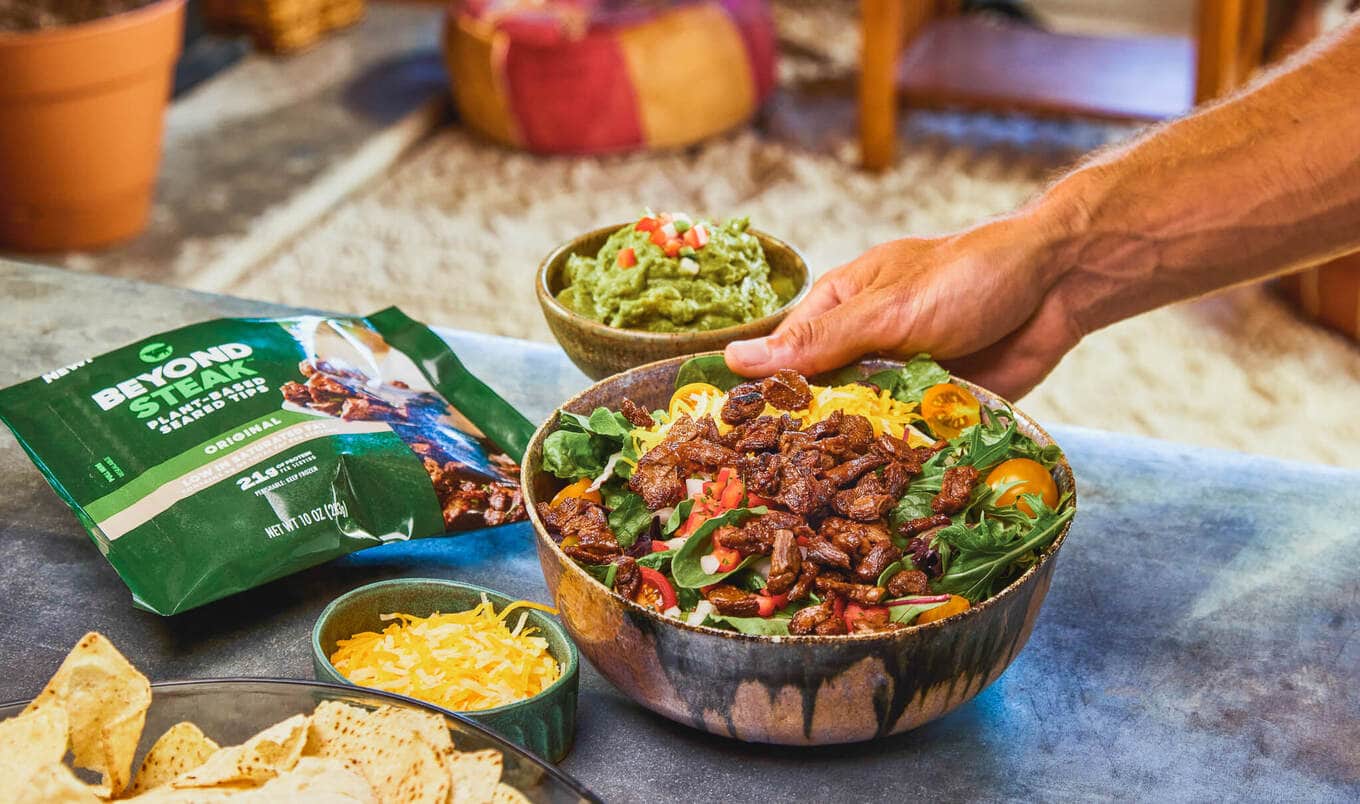 Beyond Meat
Beyond Meat
But while whole food, plant-based sources are widely thought of by many experts as the best sources of protein for our health, research has also suggested that vegan protein-packed meat alternatives—like those from Beyond Meat and Impossible Foods—are better for us than traditional meat products. In fact, a 2023 Stanford study suggested that incorporating an average of two servings of plant-based meat alternatives into your diet may lead to a reduction in certain cardiovascular risk factors.
“Find [protein sources] that you love eating and find creative ways to cook them,” Saari said.
So, when it comes to protein intake, the winner, in our view, is seemingly clear: don’t sweat it too much, and stick to plants for the most part. As long as you’re eating a wide variety of whole foods, the essential nutrients (including all-important fiber, carbohydrates, and healthy fats) should take care of themselves—and likely without the heightened disease risk either.
One final note: make sure you make room for joy on your plate, too. “The best protein source will always be the food that you enjoy and will actually eat throughout the day,” says Saari.
For plant-based recipe inspiration, check out our extensive database here.
For more on vegan nutrition, read:
JUMP TO ... Latest News | Recipes | Guides | Health | Subscribe



